I’m not one to jump on the monthly awareness bandwagon. And I am particularly not a fan of the pink ribbon bandwagon synonymous with October. I care about breast cancer awareness, of course I do. I take care of women before, during, and after treatment. It’s the focus on breast CANCER instead of breast HEALTH that I’m averse to. Goodness knows most women have ample cancer fear that does not need to be fueled. So, how about some press geared toward breast health? Well, here you go.
Food is your first medicine.
If you’ve read my work in the past, this is not news to you. If you want to send happy and healthy messages to your cells and genes, eat lots of fruits and vegetables. Organic if you can. Berries are best. They are rich in antioxidants that help your body detoxify plastics and exhaust, two toxins associated with increase incidences of breast disease. Berries also have a low-glycemic index, meaning they will help keep your blood sugar levels stable. This is key to maintaining healthy insulin levels and weight.
In that same vein, avoid sugar and decrease your carbohydrate intake. Carbohydrates are prominent in bread, cereal, and pasta. Excess carbohydrates elevate insulin levels. Elevated insulin levels lead to weight gain, particularly around the belly. Excess weight is a known risk factor for breast cancer. Also, if there is enough belly fat, it will store estrogen, increasing estrogen levels throughout the body.
As for veggies, the greener the better, particularly the cruciferous vegetables like broccoli, kale, cabbage, and Brussels sprouts. These vegetables are rich in sulfur-containing compounds that are documented to decrease incidences of breast cancer.
When cooking meat, avoid charring on the grill. That black stuff sets off a reaction in your body that goes no place good. Use a meat thermometer to be sure you are not overcooking your food.
As for the oils, the fresher, the better. Any possibility it’s rancid, throw it away. Small amounts of saturated fat, like coconut oil, are okay. Some even say beneficial. Monounsaturated fats (MUFAs), like olive oil, are considered the healthiest. Polyunsaturated fats (PUFAs) like corn, safflower, and sunflower – well, the jury is still out. And if you don’t know already, avoid transfats like margarine. They stimulate inflammation. Inflammation is the root cause of most chronic diseases. I like my cabinet stocked with a variety of oils. I try to grab a different one every time.
There’s no need to be afraid of a normal dietary intake of soy. Soy is a plant-based high protein, low carbohydrate, low-fat food that is rich with a variety of other nutrients. Avoid soy capsules and daily use of soy-based protein powders, but enjoy some edamame.
Moderate your alcohol intake.
What does that mean? It means, from the perspective of breast health, do not drink alcohol every day. Daily alcohol intake increases your risk for breast cancer. Red wine is probably best because it is rich in resveratrol, a nutrient which may help prevent cancer.
Exercise is essential.
An article in the Journal of the American Medical Association, in 2015, recommended 300 minutes of vigorous exercise a week. This is twice the recommendation for the average Jane. Sweating matters. By that I mean, you have to sweat.
Embrace your bowel movements.
Just like sweating matters, so does pooping. Daily bowel movements eliminate the byproducts of hormone metabolism and other toxins. You want those byproducts gone so they are not reabsorbed into the body, thereby increasing your toxic load.
Lastly, massage your breasts.
Or have someone else you choose carefully do that for you. It’s controversial as to whether or not breast massage actually increases breast size, but that’s not the focus here. The breast is surrounded by lots of lymph nodes, and breast health depends on those nodes working well. Breast massage can support lymphatic function.
My take home message to you during Breast Cancer Awareness Month is: If you have boobs, love them. Send them anti-inflammatory messages through the food you eat and the movement of your body. Your thoughts affect your cells, so dump the cancer fear and send them loving, positive thoughts. Let’s celebrate that.
Additional Reading
The American Institute for Cancer Research has a lot of information on cancer prevention. For more reading on information touched on here, visit the links below.


